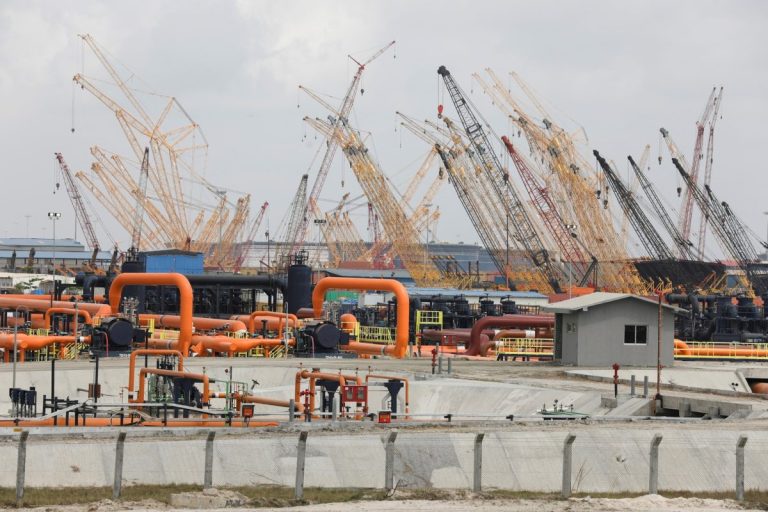Image: General view of the newly-commissioned Dangote petroleum refinery in Ibeju-Lekki, Lagos, Nigeria, May 22, 2023. REUTERS/Temilade Adelaja/File Photo.
Centre for the Promotion of Private Enterprise (CPPE) has praised the progress made in increasing domestic oil refining capacity and reducing imports, as output rose from 11.5% to 15.78% in the second quarter GDP report of 2025.
Dr Musa Yusuf, Director/ CEO of CPPE, commented on the performance of the oil and gas sector for the review period, stating: “The oil and gas sector was the clear leader in Q2 growth, experiencing a remarkable expansion of 20.46%, up from just 1.87% in Q1.”
This surge represents the sector’s best performance in years and reflects three significant dynamics:
1. Policy Reforms: Incentives for deep offshore exploration, gas commercialisation, and investor-friendly regulations are yielding results.
2. Leadership Changes: The overhaul of governance in the sector has been beneficial.
Dr Yusuf noted, “The leadership reset at NNPC has led to operational efficiency, improved transparency, and increased production.”
3. Market Conditions: Oil prices have remained relatively stable, while global demand has stayed firm, creating a favourable environment for Nigerian producers.
Despite this exceptional growth, the oil sector’s contribution to GDP remains at 4.05%, highlighting the need for Nigeria to focus on non-oil sectors to achieve inclusive and broad-based economic transformation.
For decades, Nigeria’s oil and gas sector has suffered from poor governance, corruption, and rent-seeking behaviour, resulting in the collapse of state-owned refineries, heavy dependence on imported petroleum products, and widespread crude oil theft.
This mismanagement undermined fiscal stability and diminished the sector’s developmental impact.
However, recent developments—particularly the establishment of the Dangote Refinery and petrochemical complex, along with ongoing industry reforms—signal a potential turnaround.
If these efforts are sustained, they could restore value to the sector, enhance energy security, and catalyse new investments in downstream and petrochemical industries.











